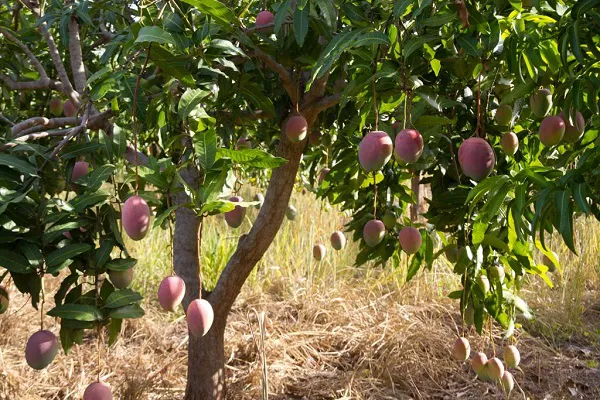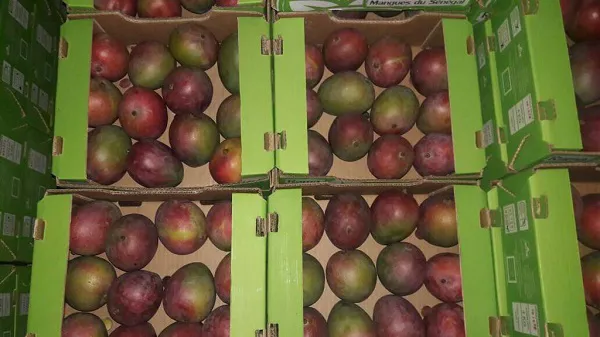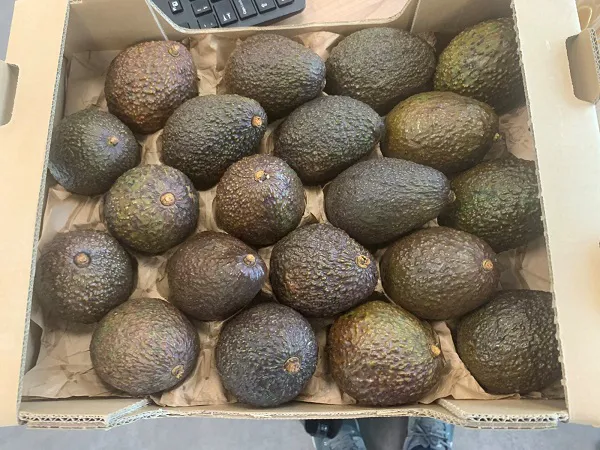Africa still offers many opportunities for Dutch fruit and vegetable companies. "It's not smooth sailing, and there are still some hurdles. But that's exactly where the Dutch business community can play a major role," says Núria Vlonk-Cunha Soares of the Netherlands-African Business Council (NABC).

Mango trees in Ghana
Organic fruit and vegetable exports from the African continent are on the rise. More and more people are becoming involved in these products, often in addition to conventional ones. Demand from the Netherlands, especially Germany, Austria, Switzerland, and Scandinavia, is growing. "When there's more demand for ginger, importers start looking at other areas besides China. They do so to spread the risks and meet demand."
The NABC is a 250-member strong network organization that promotes trade between the Netherlands and Africa. They do so via things like inbound and outbound trade trips, various events on doing business in and with Africa, and consultancy tasks. These include B2B matchmaking sessions during trade events. "At trade fairs like Fruit Logistica and BioFach, exporters make contact with the European market," explains Núria.
"Northern Europeans like seeing what they're buying, which is sometimes hard for the exporters to imagine. By being there, they see what requirements the products have to meet. The exported products' quality, thus, keeps improving," says Núria. The NABC is convinced that there are many opportunities and possibilities in Africa. "Africa's the place to be, especially agriculture-wise. There's a lot of fertile land available."

Mango's from Burkina Faso
Many factors determine which areas are promising for European trade. The climate plays a role, as does how developed the region is and how difficult or easy it is to do business there. Is there a port, and what is the logistical situation? "Particularly East Africa and Kenya are definite areas to consider. Years ago, nobody wanted Kenyan avocados. Now they've become a major exporter. Such developments can be very rapid if governments develop frameworks to facilitate exports," Soares continues.
English-speaking countries like Uganda, Ghana, Kenya, and Nigeria are so-called ‘preferred countries’ for overseas trade. "And there are areas where it may be more difficult at first but offer plenty of opportunities. Ethiopia, for example, where avocado farming abounds. That country's climate varies, and products can be shipped to Europe via the port of Djibouti."
This port is an especially important advantage. Europe is flying in fewer and fewer products as it is considered irresponsible. "The availability of a port has become more important. For some countries, that's a disadvantage. Mali, for instance, has to rely on the port of Dakar in Senegal," says Núria.
Climate change
Growers in African countries often face a lack of technology and cultivation knowledge as well as a changing climate and limited financial resources. The latter is especially true for organic growers, as it requires certification at every level of the supply chain. And you need money for that.

Avocado's from Ethiopia
Dutch companies can contribute regarding the other points. Núria cites climate change as an example. "Nigeria is home to over 200 million people, and that number grows by millions every year. Growers could benefit greatly from seeds of varieties that are more climate change-resistant. These seeds would significantly increase yields."
More intensive cooperation
Europe's new organic regulation became a fact in early 2022. Although it has been in effect since January 1, many things are still unclear. "I think these new rules will make people more reliant on each other, which isn't a bad thing. It will be very challenging for suppliers and importers, so they'll have to work together," Soares explains.
"You can't afford to make mistakes, and everyone has to comply with these rules. So, there will be fewer cowboys on the market. It's no coincidence that many importers are building long-term relationships and investing in their products' country of origin by, say, sending agronomists there. They can share their cultivation and soil knowledge."
"Importers and exporters need to understand that soil is vital for products to grow well. You can have great packing facilities and good sorting lines, but you can only use them optimally if the products are of perfect quality. Growers can take good care of the soil in all kinds of ways; then, you return to the know-how. That's something in which Dutch business can play a big role," Núria concludes.
Núria Vlonk-Cunha Soares  NABC office The Netherlands
NABC office The Netherlands
nuria.vlonk@nabc.nl
www.nabc.nl
